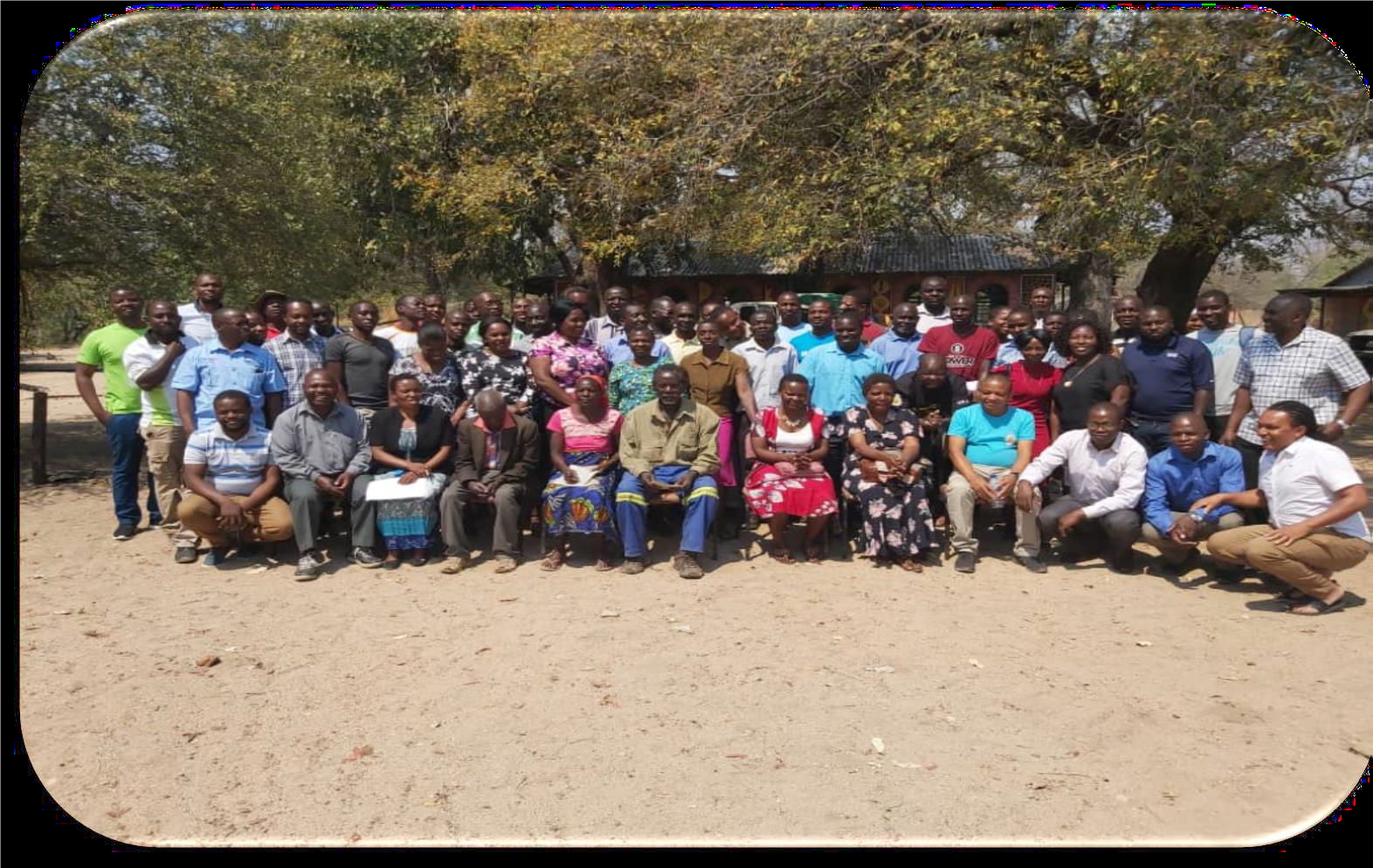Binga healthcare workers trained to detect and treat leprosy

By Tatenda Chimbwanda
Binga, Zimbabwe – Zimbabwe has recorded an increase in the number of leprosy cases, with nine cases having been recorded in Binga alone over the past year. While the overall national figures are not yet known, the surge in cases observed has been a result of the training conducted by the Ministry of Health and Child Care (MoHCC) with financial and technical support from WHO in 2019. The training focused on reviving Binga’s health care workers’ skills to diagnose and manage leprosy patients, promote early diagnosis of leprosy presumptive cases before developing grade two disability. It also sought to strengthen leprosy prevention of disability services in the country. The workshop improved leprosy active case detection campaigns, contact screening and routine leprosy control activities which have influenced trends in new case detection.
Thanks to The Nippon Foundation (TNF) generous funding, MoHCC managed to implement leprosy activities in Binga. Since 2019, the reported nine new leprosy cases were detected at different clinics across the district with Pashu recording 2 cases, Lusulu (1); Kariangwe (2); Binga hospital (2); Chunga (1) and Sinakoma (1).
The leprosy training which was conducted between 10 and 13 September 2019 in Binga brought together 57 health care workers’ representatives from all the clinics in the area. The workshop was part of Zimbabwe’s Leprosy control program addressing the sporadic re-emerging new leprosy cases in the country. Furthermore, the trained health workers went on to pass on the new knowledge to their colleagues at their different clinics, with all the health facilities in Binga now having a health worker with the capacity to diagnose and manage leprosy.
Chandala Mwinde, Binga District Hospital Clinical Officer said Binga had no reporting tools such as recording forms for leprosy case management prior to the training.
“The reporting tools we learnt about during the training helped all the healthcare workers in Binga identify the nine cases reported from different health facilities. They all had contact tracing forms and notification forms helped. Before the training we had no reporting tools or any forms of recording. We only had one case, which was not documented with any recording forms,” Mwinde clarified.
A year after the training, the long term expected outputs have come to fore in Binga as complicated leprosy presumptive cases are being referred to Binga district hospital for further examination and investigation due to increased health care worker knowledge. In addition, health care workers are also now diagnosing uncomplicated leprosy presumptive cases at their local health facilities.
Although strides have been made in detecting leprosy cases in the country, a lot of work is yet to be done to ensure these cases are detected before they are on grade two level disability.
“The 9 cases recorded in Binga where all diagnosed with Grade 2 disability which shows us that a lot of work still needs to be done to improve our case detection and early diagnoses. We are supposed to be diagnosing cases before they develop disability or maybe stage 1. This will also help address the stigma around leprosy in our communities which often associate leprosy with disability and poverty,” noted Dr Mkhokheli Ngwenya, WHO National Professional Officer for Tuberculosis.
In June 2019, MoHCC representatives from National Tuberculosis/Leprosy Control (NTLCP) and Neglected Tropical Diseases Unit (NTDU) attended Leprosy Symposium in Gaborone, Botswana organized by WHO Africa Region. This was followed by a number of activities which included the National Training of trainers held in Bulawayo in August 2019, then training in Binga.
The support WHO provided to MoHCC is part of their “Global Leprosy Strategy 2016–2020: Accelerating towards a leprosy-free world". The aim is to reinvigorate efforts for leprosy control, structured around three core pillars namely; strengthen government ownership, coordination and partnership, stop leprosy and its complications and stop discrimination and promote inclusion.
Although, Zimbabwe eliminated leprosy as a public health problem in 1992, the country remains vulnerable due to socio-economic factors such as poverty, overcrowding, and poor nutrition which still favor transmission of leprosy infection. Over the past five years, Zimbabwe has been notifying 5-10 new leprosy cases per year, all of them presenting with grade-2 disability at the time of diagnosis due to late detection.
Communications Officer
Email: chimbwandat [at] who.int
Tel: +263 7 8386326



